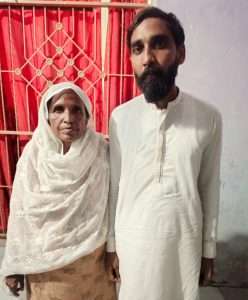In a moment that sheds light on the grave injustices brewing under Pakistan’s harsh blasphemy laws, the acquittal of 28-year-old Christian Farhan Javed Masih serves as both a testament to the flaws within the judicial system and a heartbreaking reflection of the brutal reality faced by religious minorities in the country.
On June 12, 2025, a judge in Pakistan’s Sahiwal District, Zia Ullah Khan, acquitted Masih of blasphemy and terrorism charges after the prosecution failed to substantiate its case. Masih, who had been imprisoned since January 26, 2025, was accused of insulting Islam and its sacred figures by a local villager, Muhammad Bilal Khan. This accusation came after Masih, battling mental illness and a history of drug addiction, became entangled in a bitter personal feud. Bilal, motivated by personal grudges—his brother’s friendship with Masih—accused him falsely, weaponizing Pakistan’s blasphemy laws for malicious ends.
The case highlights a pattern that has repeatedly stained Pakistan’s legal and societal framework. Under sections 295-A and 298-A of the blasphemy statutes, a person can face up to 10 years in prison for allegedly insulting Islam, and yet these laws are increasingly being used to target vulnerable individuals. The addition of anti-terrorism charges under the Anti-Terrorism Act (ATA) only intensifies the danger, making individuals more susceptible to unwarranted punishment. For Masih, the weight of these accusations not only placed him behind bars but endangered his life and freedom.
From the very beginning, the trial revealed systemic injustice. The judge refused to allow a mental health examination of Masih, dismissing any consideration of his fragile mental state and the role of his drug addiction in the alleged incident. The delay in the registration of the First Information Report (FIR), over five hours after the alleged crime, raised serious concerns about the fairness and motives behind the case. The glaring contradictions in the complainant’s statements only underscored the false nature of the charges, yet it took months for justice to be served.
Even after his release, Masih faces a life of uncertainty. He cannot return to his village, where threats to his safety loom large due to the powerful social forces that manufactured his ordeal. Instead, he must rebuild his life far from his home, forced to seek employment in another district, all because of a fabricated allegation that could have cost him his life.
This case is not isolated. It is emblematic of the growing trend where blasphemy accusations are used as tools of personal vendettas, resulting in the ruination of lives. As Pakistan witnesses an alarming surge in blasphemy accusations, especially against vulnerable minorities, it is clear that the laws are being misused to silence dissent, suppress religious minorities, and fuel sectarian hatred.
The repercussions are dire. According to the 2024 Annual Human Rights Observer report, there were 344 new blasphemy cases, with a shocking 70% of those accused being Muslims, and a significant portion comprising Christians, Hindus, and Ahmadis. The majority of these individuals face not only legal persecution but also mob violence, as accusations of blasphemy often spark riots, culminating in extrajudicial killings. Since 1994, over 100 individuals have lost their lives due to accusations of blasphemy.
The Pakistani government must urgently address the weaponization of its blasphemy laws. The case of Farhan Javed Masih is a stark reminder of the systemic persecution that religious minorities face, the weaponization of law for personal revenge, and the need for judicial reforms. Until Pakistan takes accountability for the deep flaws in its legal system and ensures that justice is not manipulated to fuel intolerance, many more innocent lives will continue to be shattered.
It is time for Pakistan to confront its darkness, stop turning a blind eye to the suffering of its people, and stand up for the rights and dignity of all its citizens, regardless of their religion or background. The world must not remain silent in the face of such gross human rights violations. Only through collective action can we hope to dismantle the machinery of oppression that has endured for far too long in Pakistan.
